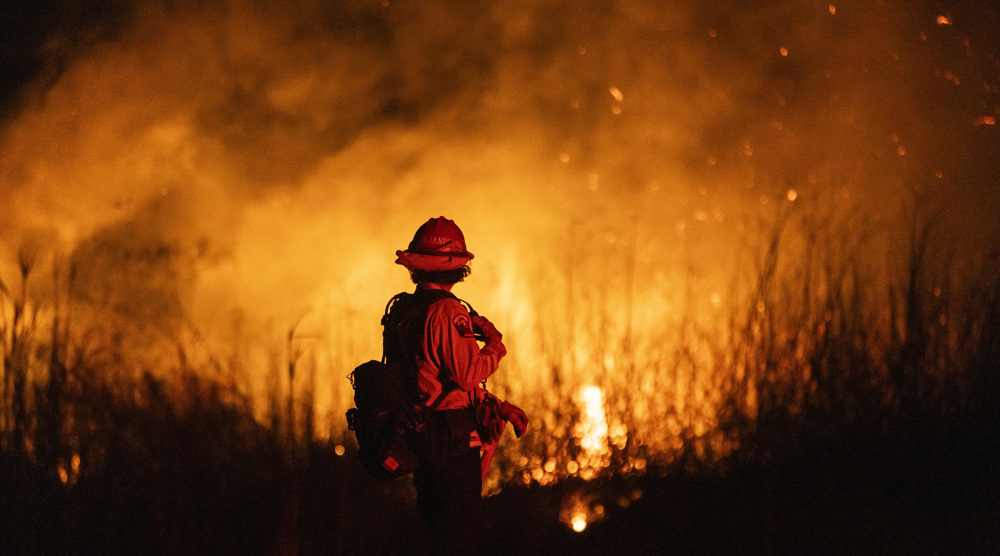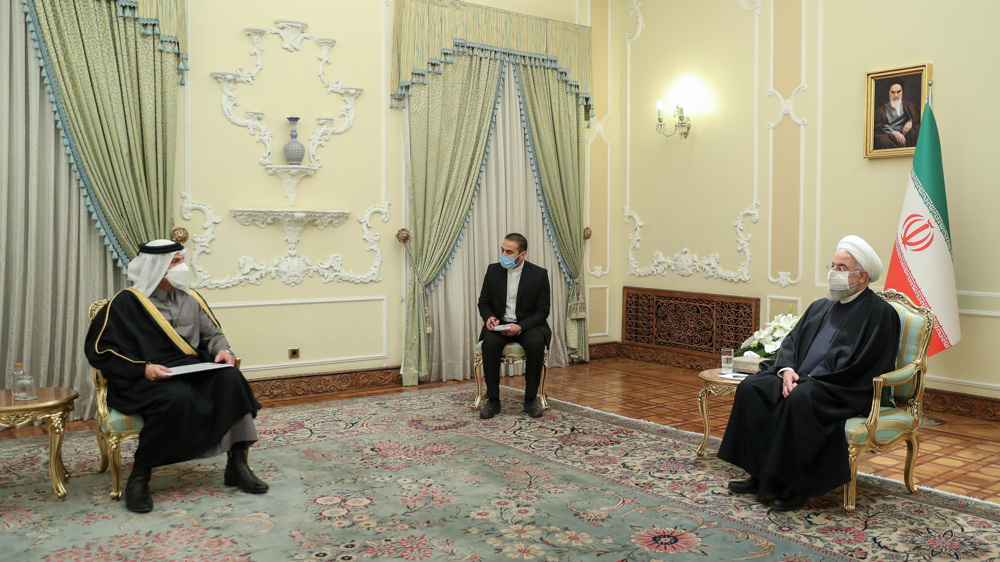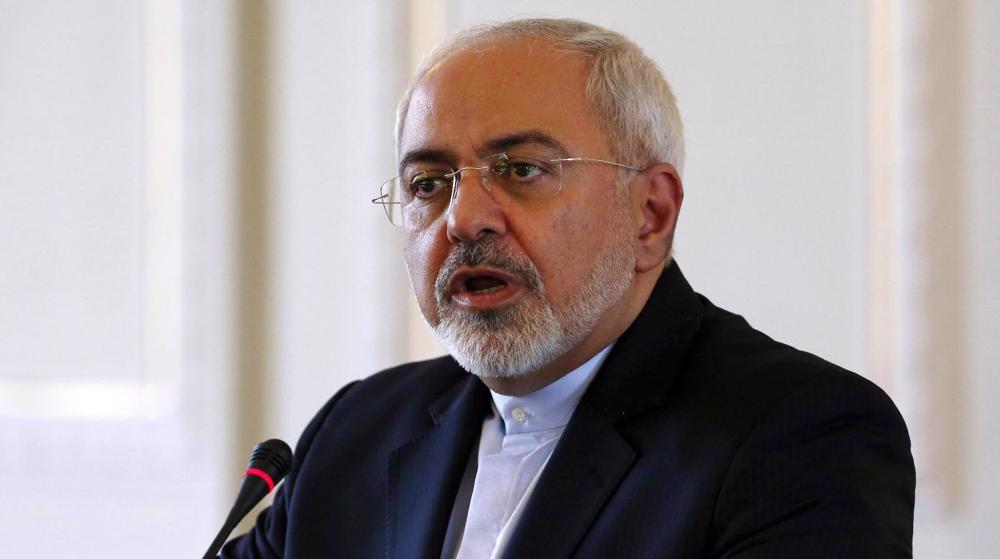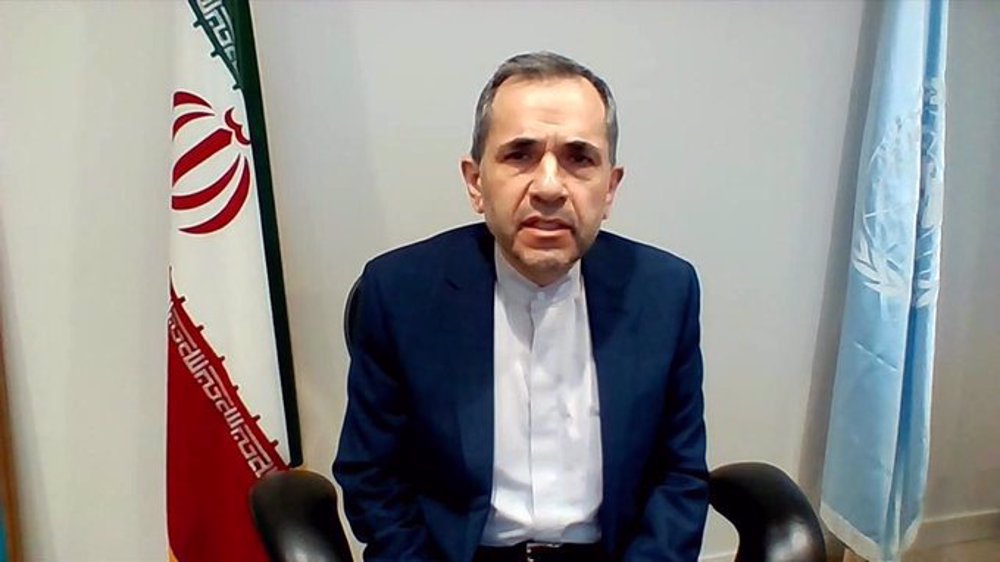Rouhani tells Merkel: Adding anything to nuclear deal ‘impossible’
Iranian President Hassan Rouhani says it would be “impossible” to modify the country's landmark nuclear agreement, emphasizing that the only way to save the deal is to lift the United States’ “inhumane sanctions” on Iran.
Rouhani made the remarks in a phone call with German Chancellor Angela Merkel on Wednesday, hours after he restated Iran’s long-held position that it does not seek to develop nuclear weapons or run a secretive nuclear program.
The president categorically dismissed the possibility of injecting new items into the already negotiated nuclear deal, formally called the Joint Comprehensive Plan of Action (JCPOA), which was struck on July 14, 2015 between Iran and six world powers – the US, Britain, France, Germany, Russia and China.
“The JCPOA, as a document approved by the UN Security Council and a product of sustained efforts by Iran and six major countries in the world, has a clear framework and cannot be changed,” Rouhani told Merkel, according to the president’s office.
The US unilaterally left the nuclear agreement under the Trump administration in May 2018, and then put enormous pressure on Iran with the declared aim of making a “better deal” that it said should include Iran’s missile program and its regional activities.
Tehran rejected the “excessive demands” and countered Trump’s so-called maximum pressure policy with its “maximum resistance”. Iran has since consistently dismissed calls to renegotiate the JCPOA, while criticizing the three European parties to the deal – also known as the E3 – for their apparent inability to stand up to US unilateralism and their failure to secure Iran’s interests under the agreement.
Hinting at Europe’s lack of commitment to the JCPOA in the aftermath of the US withdrawal, Rouhani said Iran should be able to see the effectiveness of the nuclear deal in practice, and Europe should practically prove that it is really after maintaining the JCPOA.
As part of Iran’s response to the US withdrawal, Iranian lawmakers approved a bill in early December, requiring the administration to resume uranium enrichment to 20 percent purity among other things. The Rouhani administration implemented the new law, but emphasized that Iran will reverse its actions if the other countries in the JCPOA safeguard its interests under the deal.
Rouhani said his administration is committed to further reducing the country’s obligations under the JCPOA, unless the sanctions are lifted, in which case “we will also completely implement our obligations within the framework of the JCPOA.”
For her part, Merkel called on Iran to take steps to ensure its return to full compliance to the JCPOA.
“She expressed her concern that Iran continues to fail to meet its obligations under the nuclear agreement,” Merkel’s spokesman Steffen Seibert said in a statement.
“It is now time for positive signals that create trust and increase the chances of a diplomatic solution,” the chancellor said, according to Seibert.
Iran, US reaching deadlock
The victory of Joe Biden in the November 3 presidential election in the US brought fresh hope to those in favor of the JCPOA around the globe, with the exception of Israel and some Arab countries such as Saudi Arabia.
Biden had already pledged to return his country to the deal and, unlike his predecessor, exercise diplomacy. However, he has failed to deliver so far, and instead, urged Iran to return to full compliance before the US re-enters the JCPOA, pushing the issue toward a deadlock.
“It has been a month now that the Biden administration has been continuing Trump’s ‘maximum pressure’ policy of lawlessness, one-upmanship, and bullying,” Foreign Minister Mohammad Javad Zarif said earlier in the day.
Leader of the Islamic Revolution Ayatollah Seyyed Ali Khamenei also said Iran will not accept mere words regarding the JCPOA but needs to see some action from the other sides.
“If we see action on [their] part, we will take action as well. The Islamic Republic will not be satisfied with mere words and promises this time around,” he said.
At the same time, US State Department spokesman Ned Price repeated the Biden administration’s position with regard to the JCPOA, saying, “If Iran resumes its full compliance with the deal, we will do the same.”
He also said the new administration wants to “lengthen and strengthen” the nuclear deal, and build on it with follow-on arrangements to include other issues such as Iran’s missile program.
The remarks were made ahead of a meeting between the E3 and the US on reviving the JCPOA.
On Thursday, French Foreign Minister Jean-Yves Le Drian will host his German and British counterparts, with US Secretary of State Antony Blinken joining via videoconference, according to the AFP.
Meanwhile, the development comes while US hawks remain highly active.
John Bolton, a former national security advisor under Trump, claimed that Tehran remains determined to develop nuclear weapons, Arab News reported. He also repeated his famous mantra that “the regime is coming down”.
Also, Biden had an hour-long phone call with Israeli Prime Minister Benjamin Netanyahu on Wednesday, with both sides issuing vague descriptions of the call. They gave no details of the conversation but announced that Iran was among the subjects discussed.
Iran cuts gold import tariff to zero
Pezeshkian: Iran determined to develop, boost ties with neighbors
VIDEO | Israel, Hamas ceasefire agreement: Closer than ever
VIDEO | Gaza ceasefire to be put in place under resistance conditions
Hot water and sewage: Palestinians share harrowing tales of torture in Israeli prisons
VIDEO | Thousands evacuated in Ethiopia amid earthquakes, volcanic eruption fears
Revealed: Israeli ministers eye restoration of illegal settlements in Gaza through genocide
How Los Angeles’ pistachio tycoons facilitated and profited from wildfires


















 This makes it easy to access the Press TV website
This makes it easy to access the Press TV website